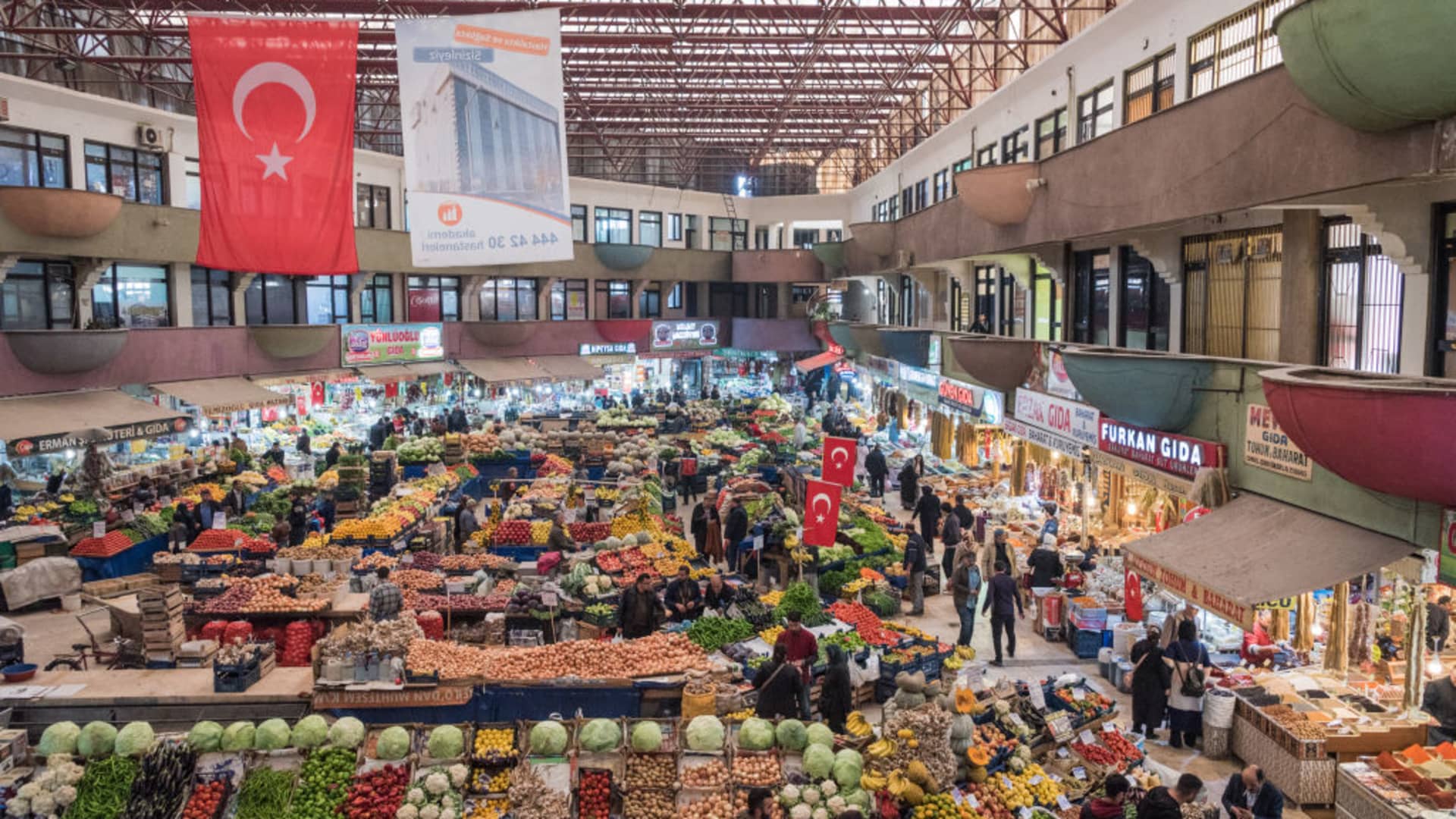
Shoppers stroll the aisles of a bazaar in Konya, Turkey. The country is experiencing brutal inflation, with food and non-alcoholic beverage prices rising 70.3% year over year for March.
Diego Cupolo | Nurphoto | Getty Images
Inflation in Turkey rose close to 79% last month, the highest the country has seen in a quarter of a century.
The annual inflation rate was 78.62% for June, according to the Turkish Statistical Institute, surpassing forecasts. The monthly increase was 4.95%.
Soaring consumer prices have hit the population of 84 million hard, with little hope for improvement in the near term as a result of the Russia-Ukraine war, high energy and food prices, and a sharply depreciated lira, the national currency.
Transportation prices jumped 123.37% from the previous year, and food and non-alcoholic beverage prices climbed 93.93%, according to government data.
Turkey has enjoyed rapid growth in previous years, but President Recep Tayyip Erdogan has for the last few years refused to meaningfully raise rates to cool the resulting inflation, describing interest rates as the “mother of all evil.” The result has been a plummeting Turkish lira and far less spending power for the average Turk.
Erdogan instructed the country’s central bank — which analysts say has no independence from him — to repeatedly slash borrowing rates in 2020 and 2021, even as inflation continued to rise. Central bank chiefs who expressed opposition to this course of action were fired; by the spring of 2021, Turkey’s central bank had seen four different governors in two years.
The country’s interest rate was gradually reduced to 14% last fall and has remained unchanged since. The lira fell 44% against the dollar last year, and is down 21% against the greenback since the start of this year.
Turkey’s government has introduced unorthodox policies to try to shore up the lira without raising interest rates. In late June, Turkey’s banking regulator announced a ban on lira loans to companies holding what it deemed to be too much foreign currency, which boosted the currency briefly but caused more uncertainty among investors who questioned the sustainability of the measure.




